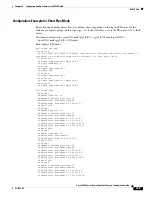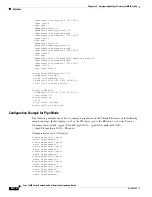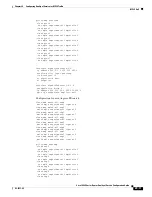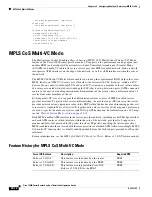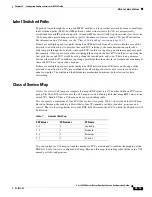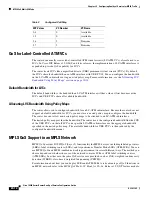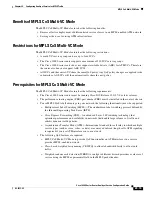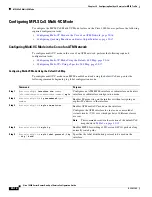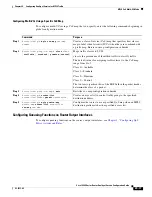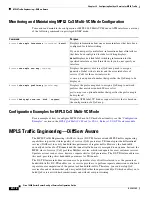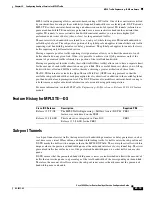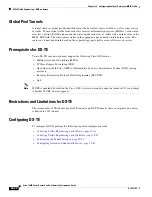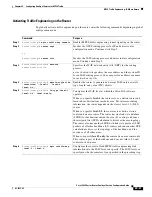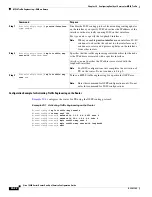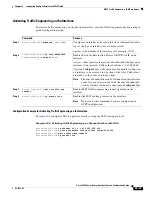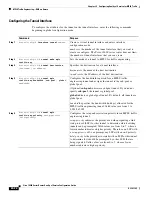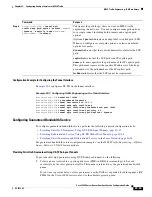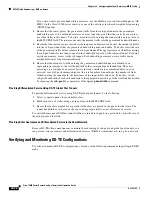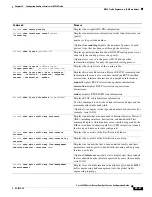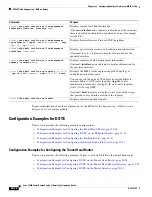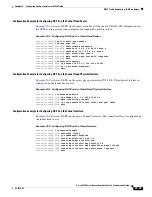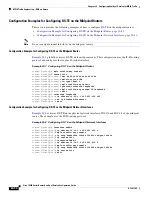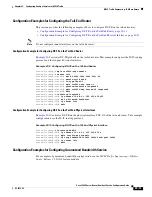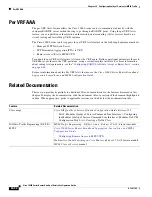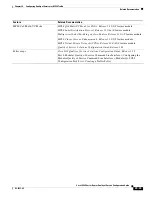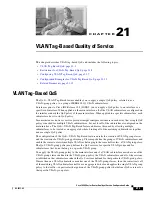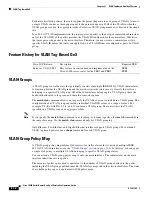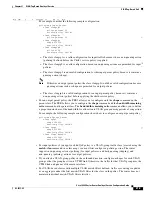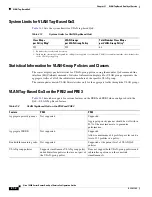
20-23
Cisco 10000 Series Router Quality of Service Configuration Guide
OL-7433-09
Chapter 20 Configuring Quality of Service for MPLS Traffic
MPLS Traffic Engineering—DiffServ Aware
Activating Traffic Engineering on the Interface
To activate traffic engineering on the physical interface, enter the following commands beginning in
global configuration mode:
Configuration Example for Activating Traffic Engineering on the Interface
Example 20-2
configures TE on a physical interface using the IS-IS routing protocol.
Example 20-2 Activating Traffic Engineering on a Physical Interface with IS-IS
Router(config-if)#
ip address 10.1.1.1 255.255.255.255
Router(config-if)#
ip rsvp bandwidth 130000 130000 sub-pool 80000
Router(config-if)#
mpls traffic-eng tunnels
Router(config-if)#
ip router isis
Command
Purpose
Step 1
Router(config)#
interface
type number
Configures an interface and enters interface configuration mode.
type
is the type of interface (for example, serial).
number
is the number of the interface (for example, 1/0/0).
Step 2
Router(config-if)#
ip rsvp bandwidth
interface-kbps
[
sub-pool
kbps
]
Enables Resource Reservation Protocol (RSVP) for IP on an
interface.
interface-kbps
specifies the amount of bandwidth (in kbps) on an
interface to be reserved. Valid values are from 1 to 10,000,000.
(Optional)
sub-pool
kbps
is the amount of bandwidth (in kbps) on
an interface to be reserved to a portion of the total. Valid values
are from 1 to the value of
interface-kbps
.
Note
The sum of bandwidth used by all tunnels on this interface
cannot exceed
interface-kbps
and the sum of bandwidth
used by all sub-pool tunnels cannot exceed
sub-pool
kbps
.
Step 3
Router(config-if)#
mpls traffic-eng
tunnels
Enables MPLS traffic engineering tunnel signaling on the
interface.
Step 4
Router(config-if)#
ip router isis
Enables the IS-IS routing protocol on the interface.
Note
Do not enter this command if you are configuring an
OSPF configuration.

